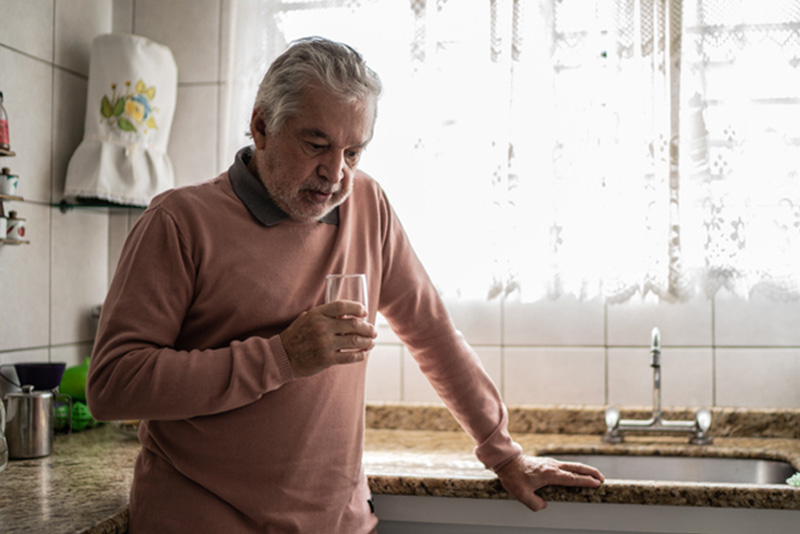
Understanding the connection between heart disease and depression in an important step on the road to recovery.
Experiencing a heart attack changes life in an instant. What seemed important prior to the health crisis suddenly fades into the background, as the top priority becomes helping the damaged heart to heal. Life is then filled with adjusting to new medications, implementing dietary changes and an exercise regimen, following up with medical appointments and tests, all aimed at ensuring optimal physical health.
Yet it’s equally important to pay close attention to mental health during the recovery process. While tending to all of the new to-dos, feelings of fear, frustration, anger, anxiety, and denial, among others, may settle in. It’s easy to see how depression can manifest as well. In fact, there is a clear connection between heart disease and depression. Those with no history of depression are at risk to experience it following a heart condition, while those already struggling with depression are at a greater risk for heart disease.
Why Is Depression Common After a Heart Attack?
Heart problems can cause a person to experience a range of moods, including:
- Lowered self-esteem
- Self-doubt and questions about self-identity
- Embarrassment over the need for help
- Guilt over lifestyle choices that may have caused the problem
- Uncertainty about what the future holds
- And more
These types of feelings lead to depression, which in turn impacts the person’s ability to recover fully from the heart attack, because they may:
- Experience depression-related hormonal changes that can cause arrhythmia
- Develop especially sticky platelets that accelerate hardening of the arteries
- Lack the motivation to follow doctor’s orders
- Choose to self-medicate through alcohol, smoking, unhealthy eating, etc.
What Are the Signs of Depression?
Assess to determine if any of these red flags of depression are present after a heart incident:
- Changes in sleeping habits
- Restlessness or sluggishness
- Difficulty with focusing, decision-making or memory
- Hopelessness or helplessness
- Appetite or weight changes
- Loss of interest in once-enjoyed activities
If depression is suspected, talk to the doctor as soon as possible. Effective treatment options are available.
How Home Care Can Help
Recovering from a heart attack is difficult enough, but adding in the effects of depression can make it seem insurmountable. Home care can help in a variety of ways with both physical and emotional recovery, with services such as:
- Friendly companionship for conversations and engaging distractions to brighten each day
- Light housekeeping and laundry
- Grocery shopping and other errands
- Medication reminders to ensure meds are taken exactly as prescribed
- Encouragement to stick to a prescribed exercise plan
- Planning and preparing heart-healthy meals
- And much more
Want to learn more about the connection between heart disease and depression? Contact Abby Senior Care at 303-699-8840 to request additional resources to help someone with heart disease, depression, or any other chronic health condition, and to learn more about our home care services in Littleton, Aurora, Denver, and the surrounding areas.
